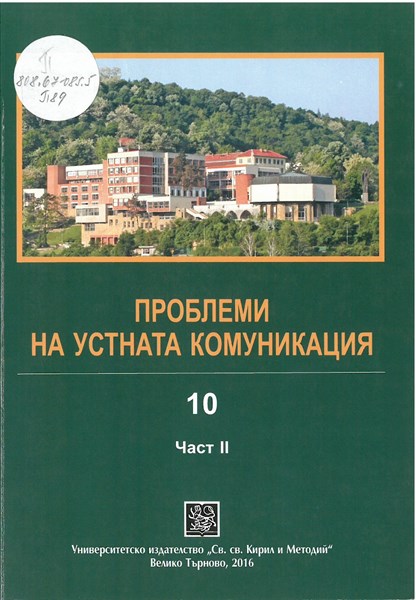Катeгориите добро и лошо в българския език на базата на представите за движение (от гледна точка на когнитивния подход към езика)
The Categories of Good and Bad in Modern Bulgarian on the Basis of the Notions of Motion (from a Cognitive Linguistic Point of View)
Author(s): Miroslava VatovaSubject(s): Language studies, Language and Literature Studies, Applied Linguistics, Cognitive linguistics, Eastern Slavic Languages, Philology
Published by: Великотърновски университет „Св. св. Кирил и Методий”
Summary/Abstract: The present article deals with the concepts of GOOD and BAD as reflected in Bulgarian lexical system from the point of the theory of cognitive metaphore, developed by G. Lakoff and M. Johnson. The research is based on the view that the concepts of GOOD and BAD undoubtedly belong to the natural kinds of human experience, but nevertheless they require definition by means of metaphors as long as they do not exist objectively in the physical world but are resulting from human comprehension. The attention is drawn more specifically on those notions of physical motion which the Bulgarians have used unconsciously in order to understand the more abstract cognitive domains of GOOD and BAD.
Journal: Проблеми на устната комуникация
- Issue Year: 10/2016
- Issue No: 2
- Page Range: 157-164
- Page Count: 8
- Language: Bulgarian

